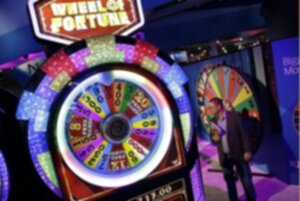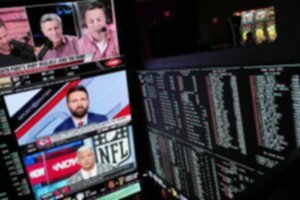On their final day in session last Friday, the Michigan Senate voted 33 to 5 in favor of legalizing online poker and casino gambling.
The vote authorizing the Lawful Internet Gaming Act would make Michigan the fifth state – joining Delaware, Nevada, New Jersey, and Pennsylvania – to allow gambling online.
Officially known as House Bill 4926, the legislation was introduced by Representative Brandt Iden (R-61) in September of last year. The bill marked Iden’s fourth consecutive year working with state senator Mike Kowall (R-15) to bring internet gambling to the state.
In June of this year, the Michigan House of Representatives voted 68 to 40 in favor of HB-4926, sending it to the state Senate for further review. But lawmakers there waited until the proverbial last minute to sign off, reconvening for an emergency vote one day after their “lame duck” session officially ended.
The Michigan gambling bill must still be signed by outgoing Governor Rick Snyder before becoming law, but as Kowall told Online Poker Report following passage, his Republican colleague is widely expected to approve:
“I’ve spoken to him directly, I’ve spoken to his chief of staff, I’ve spoken to the person who cleans the floors in his office.
Everyone has said he is probably going to sign it.
I’m optimistic that he’ll sign the bill, especially with Pennsylvania having gone in that direction.”
Pennsylvania legalized iGaming in October of 2017, and major operators like PokerStars, 888 Holdings, and DraftKings are gearing up to launch early next year.
Working with Tribal Groups Helps Michigan Online Gambling Bill Pass
Assuming the Governor approves, the bill calls for a Division of Internet Gaming to be created as part of the Michigan Gaming Control Board (MGCB).
The state’s three commercial casinos and 23 tribal casinos would then be permitted to partner with licensed iGaming operators, before launching online poker and/or casino platforms following a 15-month waiting period. The MGCB would be tasked with assessing prospective operators, which would pay a $100,000 license application fee, plus a $200,000 one-time licensing fee and $100,000 annually for license renewal.
The state would also collect an eight percent tax on gaming revenue, along with an additional 1.25 percent local share levy directed to commercial casinos in Detroit.
Those details were largely ironed out when the House originally passed HB-4926 in June, but at that time, the bill faced stiff opposition from Michigan’s tribal gaming operators.
In an exclusive interview with Online Poker Report, Kowall offered several insights into the eleventh-hour negotiations needed to secure passage.
According to Kowall, the major sticking point preventing the tribes from coming onboard was Section 16. This portion of the bill would’ve allowed commercial casinos to continue iGaming operations even if changes in federal law precluded tribes from doing the same.
Kowall responded by axing Section 16 altogether, appeasing the tribes and ensuring passage by the Senate. As he later told Online Poker Report, Kowall considers that compromise to be historic within the context of Michigan’s gaming industry politics:
“It’s the first time I think in the history of Michigan that we had the tribes and commercial casinos come together and agree.”
Placeholder Language Makes Sports Betting a Possibility in Michigan
The impetus for HB-4926 was to regulate poker and casino Michigan online gambling, but one line buried within the text also makes the addition of sports betting possible:
“The division may permit internet gaming operators licensed by the division to accept internet wagers under this act on any amateur or professional sporting event or contest.”
The U.S. Supreme Court struck down a federal ban on sportsbooks outside of Nevada in May of this year. Since then, seven states – Delaware, New Jersey, Mississippi, West Virginia, New Mexico, Rhode Island, and Pennsylvania – have launched legal sportsbooks.
The Michigan Legislature would have to pass another bill to legalize sports betting, but should that occur, the state will be positioned to integrate online wagering sooner rather than later.





